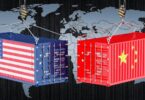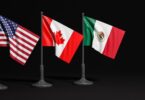Jared Bernstein, Chair of the Council of Economic Advisers, and Economic Policy Adviser to President Joe Biden, stuttered and stammered trying to explain how money works and why the United States continues to print so much of it.
Berstein’s confusion is highlighted in a new documentary called “Finding The Money,” covering the many problems troubling today’s economy.
During a segment of the interview Bernstein was asked about the creation of money and its circulation. The interviewer said in the film “We all use money, and yet the questions of what is money, and where does money come from remain elusive.”
The U.S. government can’t go bankrupt because we can print our own money.
Bernstein claimed
But when pressed as to why the U.S. even borrows when it can just print its own money, Bernstein struggled greatly to answer.
Well, some of the language is just confusing. The government definitely prints its own money. The government definitely prints money and lends that money. The government definitely prints money.
It then lends that money by selling bonds. Is that what that they do? They sell bonds and then people buy the bonds and lend the money. Yeah.
I don’t get it. I don’t know what they’re talking about.
Bernstein said, questioning himself and eventually giving up trying to give a sufficient answer
Lena Petrova, CPA, an accomplished accountant, explains in simple terms what Bernstein could not:
If you feel that you don’t understand how the government can print so much money, please don’t worry – even Jared Bernstein (whose background is Bachelors in Music and Doctorate in Social Welfare), the Chairman of the Council of Economic Advisors, can’t explain and is absolutely clueless, too or… maybe he’s just a bad liar?
Of course the government doesn’t simply “print” cash.
Instead, it issues bonds (debt) and sells it to foreign and domestic investors. Historically, US Treasuries have been the safest investments, which is why foreign governments held massive portfolios of US debt. However, due to the decline in demand in recent years and massive sell off by China, Saudi Arabia et al, fewer buyers are willing to purchase American debt due to the nation’s growing national debt, budget deficits and geopolitical tensions. So, what happens when the US can’t find investors to purchase its debt? The Federal Reserve would print money to buy the US debt. The problem is that US government spending (ie funding wars and paying interest on its debt) not only doesn’t create value, but also it leads to inflation.
By the way, this is the Jared Bernstein who, in a 2014 New York Times article titled “Dethrone ‘King Dollar” asserted: “The government needs to drop its commitment to maintaining the dollar’s reserve-currency status.”
Sophocles once said, “No enemy is worse than bad advice”.
Music and Social Welfare majors probably don’t learn basic economics, precisely the reason why allowing them to provide economic advice yields devastating results.
Moreover, Investopedia explains this process in an article titled, “Understanding How the Federal Reserve Creates Money.” They wrote:
The Fed could initiate open market operations (OMO), where it buys or borrows Treasury bills from commercial banks to inject money. The central bank will add cash to the accounts, called bank reserves, that banks are required to keep. That increases the money supply. On the other hand, if the Fed sells or lends treasuries to banks, the payment it receives in exchange will reduce the money supply.
Today’s Federal Reserve buys new, readily liquefiable accounts, such as U.S. Treasuries, on the open market from financial institutions to add funds to their existing bank reserves. This has the same effect as printing new bills and transporting them to the banks’ vaults (but it’s cheaper). The newly credited balances count just as much as physical bills in the economy. They can also be just as inflationary.
The Federal Reserve creates money when it decides that the economy would benefit by it doing so. It creates money not by printing currency but by effectively adding funds to the money supply.
The Fed does this in various ways, including changing the target fed funds rate with the goal of affecting other interest rates. Or it may buy Treasury securities on the open market to add funds to bank reserves. Banks create money by lending excess reserves to consumers and businesses. This, in turn, ultimately adds more to money in circulation as funds are deposited and loaned again.
The Fed does not actually print money. This is handled by the Treasury Department’s Bureau of Engraving and Printing. The U.S. Mint makes the country’s coins.
AUTHOR COMMENTARY
Ecclesiastes 7:12 For wisdom is a defence, and money is a defence: but the excellency of knowledge is, that wisdom giveth life to them that have it.
Honestly, I think it’s a bit of both; I think he’s both incompetent and a cunning liar. On one hand, he’s a complete fool but on the other I find it hard to believe this man could be this dumb. But, then again, politics is just one big “good fellows club;” and this only reaffirms just how vain and garrulous voting is anymore, because these administrations, cabinets, and departments are filled with companions of fools, best friends from high school, and other creeps with wealth and influence in high places that get these jobs, not because they earned it. As the old saying goes, It’s who you know.
Proverbs 30:21 For three things the earth is disquieted, and for four which it cannot bear: [22] For a servant when he reigneth; and a fool when he is filled with meat; [23] For an odious woman when she is married; and an handmaid that is heir to her mistress.
Ecclesiastes 9:17 The words of wise men are heard in quiet more than the cry of him that ruleth among fools.
The fact remains that we cannot keep printing money, especially when a lot of that is just so we can rob Peter to Paul, and keep expanding the deficits and never paying off debts. Imagine playing the board game Monopoly and all the properties are being mortgaged, while the money supply in the bank keeps increasing, with interest, and new players are allowed to enter the board periodically. It does not take a genius to see the bind that would create.
[7] Who goeth a warfare any time at his own charges? who planteth a vineyard, and eateth not of the fruit thereof? or who feedeth a flock, and eateth not of the milk of the flock? [8] Say I these things as a man? or saith not the law the same also? [9] For it is written in the law of Moses, Thou shalt not muzzle the mouth of the ox that treadeth out the corn. Doth God take care for oxen? [10] Or saith he it altogether for our sakes? For our sakes, no doubt, this is written: that he that ploweth should plow in hope; and that he that thresheth in hope should be partaker of his hope. (1 Corinthians 9:7-10).
The WinePress needs your support! If God has laid it on your heart to want to contribute, please prayerfully consider donating to this ministry. If you cannot gift a monetary donation, then please donate your fervent prayers to keep this ministry going! Thank you and may God bless you.








In grade school in the 60s, I remember suggesting that if my Dad needed more money then he should just write a check. I got a quick lesson in economics. I think I’ve fully understood ever since. I know I had an even better understanding once I learned about the gold standard vs fiat money.